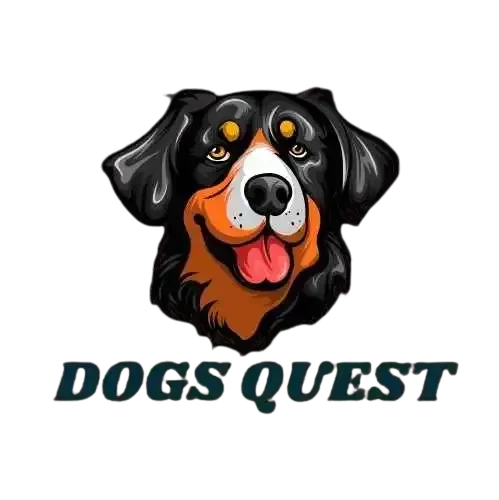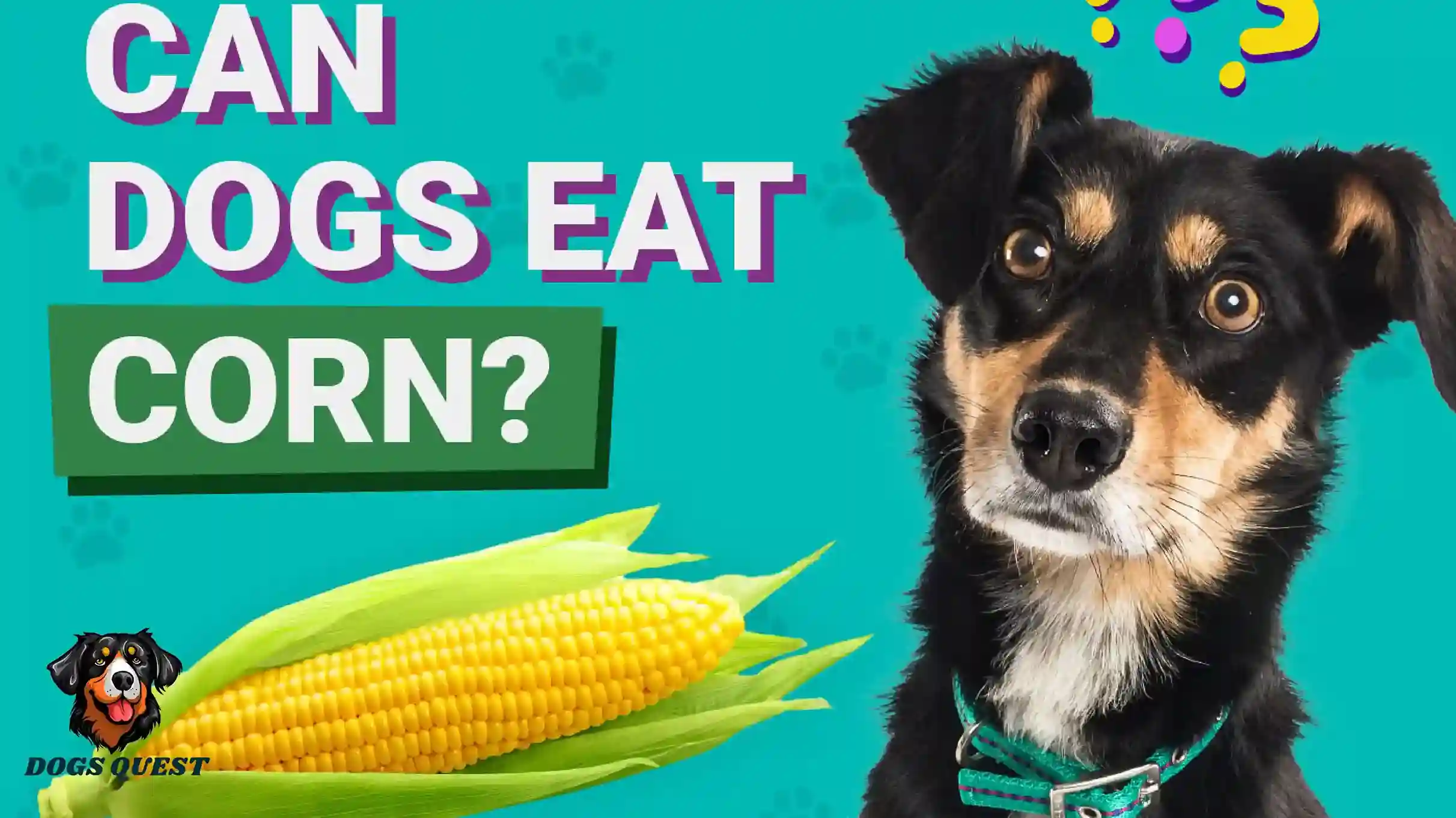Can dogs eat corn? Yes, but with care! Discover 7 amazing facts about corn for dogs, including benefits, risks, and expert feeding tips for a healthy diet.
Introduction:
If you’ve ever sat down with a bowl of buttered corn and noticed your furry friend staring at you with those irresistible puppy eyes, you’ve probably wondered: Can dogs eat corn?
Good news – the answer is generally yes, but with a few important conditions. Like most human foods, corn can be a safe and even beneficial treat for dogs when served properly. However, there are also risks you must be aware of.
In this article, we’ll break down everything you need to know about can dogs eat corn, from its nutritional value to potential hazards, and share expert-backed feeding tips that every responsible dog parent should follow.
Can Dogs Eat Corn? The Simple Answer
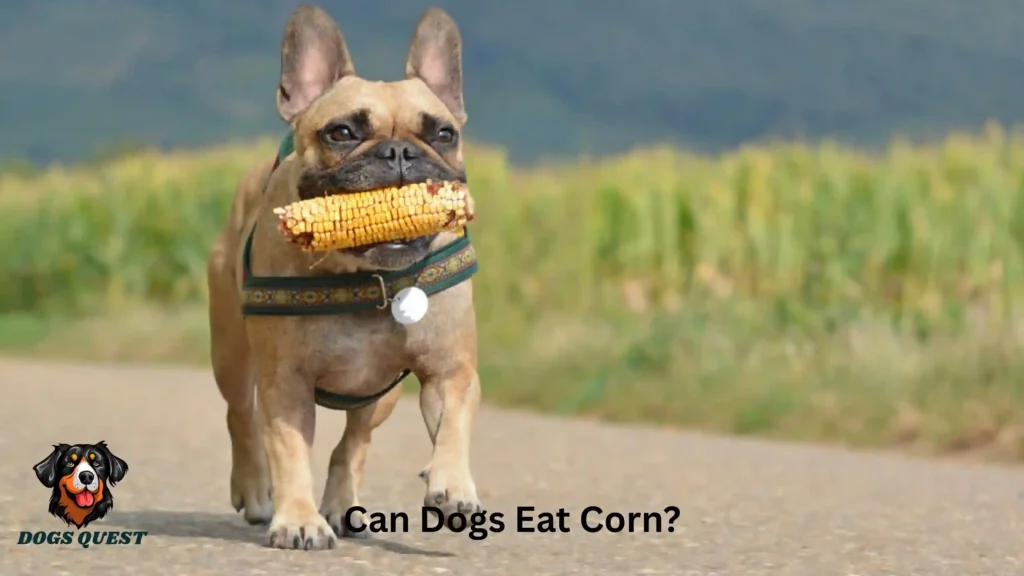
Yes, dogs can eat corn, and it’s even found in many commercial dog foods. Corn is packed with carbohydrates, fiber, vitamins, and minerals that can provide energy and support digestion. But before you toss a corn cob to your pup, you should understand how to prepare it safely.
- Cooked, plain corn kernels = safe in moderation.
- Corn cobs = dangerous and should never be given.
- Popcorn without butter/salt = an occasional crunchy snack.
So, while corn itself is not toxic, the way you serve it makes all the difference.
Why Can Dogs Eat Corn? Nutritional Benefits Explained
1. Energy Boost from Carbohydrates
Corn is a carbohydrate-rich food, which makes it an excellent source of energy for active dogs. If you’ve got a high-energy breed like a Border Collie or Labrador, corn can help fuel their daily adventures.
2. Fiber for Healthy Digestion
Another reason why can dogs eat corn safely is because of its fiber content. Fiber helps regulate bowel movements and supports a healthy gut, reducing the risk of constipation.
3. Essential Vitamins and Minerals
Corn is loaded with:
- Vitamin B-complex (for metabolism)
- Magnesium (supports bone health)
- Iron (improves oxygen circulation)
These nutrients can contribute to overall wellness when corn is offered in small amounts.
4. Protein Support
Though not as high as meat-based proteins, corn does contain plant-based protein, which contributes to muscle development and repair.
Risks of Feeding Corn to Dogs
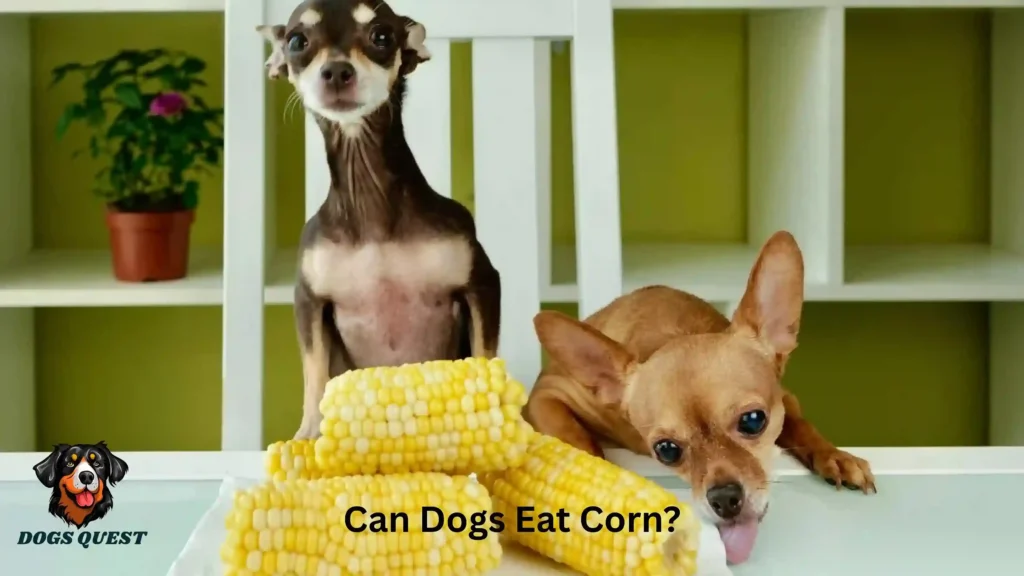
While the answer to can dogs eat corn is mostly positive, there are risks you should consider.
Corn Cobs Are Dangerous
Corn cobs are choking hazards and can cause life-threatening intestinal blockages. If swallowed, they often require emergency surgery.
Allergic Reactions
Some dogs may be allergic to corn. Watch for signs like:
- Itchy skin
- Ear infections
- Gastrointestinal upset
Too Much Salt or Butter
When asking can dogs eat corn, remember: plain is best. Butter, salt, and seasonings can harm your dog’s health, leading to dehydration or pancreatitis.
Weight Gain Risk
Corn is calorie-dense. Feeding too much may contribute to obesity, especially in dogs that are less active.
Can Dogs Eat Corn in Different Forms?
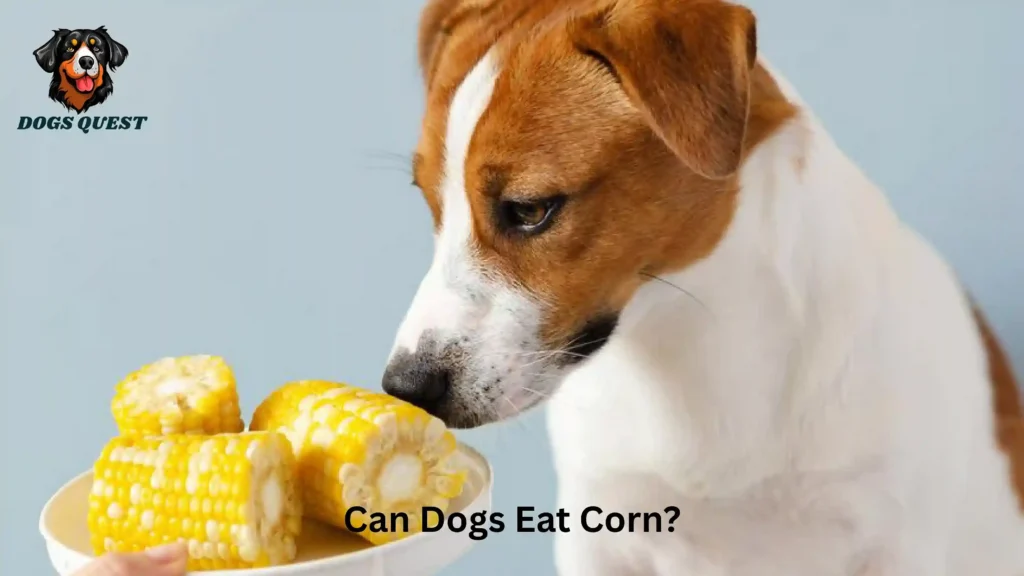
Can Dogs Eat Corn Kernels?
Yes! Cooked corn kernels are safe and easy to digest. Always remove them from the cob first.
Can Dogs Eat Corn on the Cob?
No! The cob poses a serious choking hazard and risk of intestinal blockage. Never give your dog a whole cob.
Can Dogs Eat Popcorn?
Yes, but only if it’s plain, air-popped, and unsalted. Avoid flavored or buttered popcorn.
Can Dogs Eat Canned Corn?
Not recommended. Canned corn often contains added salt and preservatives, which aren’t healthy for dogs.
Can Dogs Eat Sweetcorn?
Yes, sweetcorn is safe, but like regular corn, it must be cooked and served plain.
How Much Corn Can Dogs Eat?
When considering can dogs eat corn, moderation is key.
- Small dogs: 1–2 tablespoons of cooked kernels.
- Medium dogs: Up to ¼ cup.
- Large dogs: Up to ½ cup.
Always introduce corn slowly to avoid stomach upset.
Expert Tips for Feeding Corn to Dogs
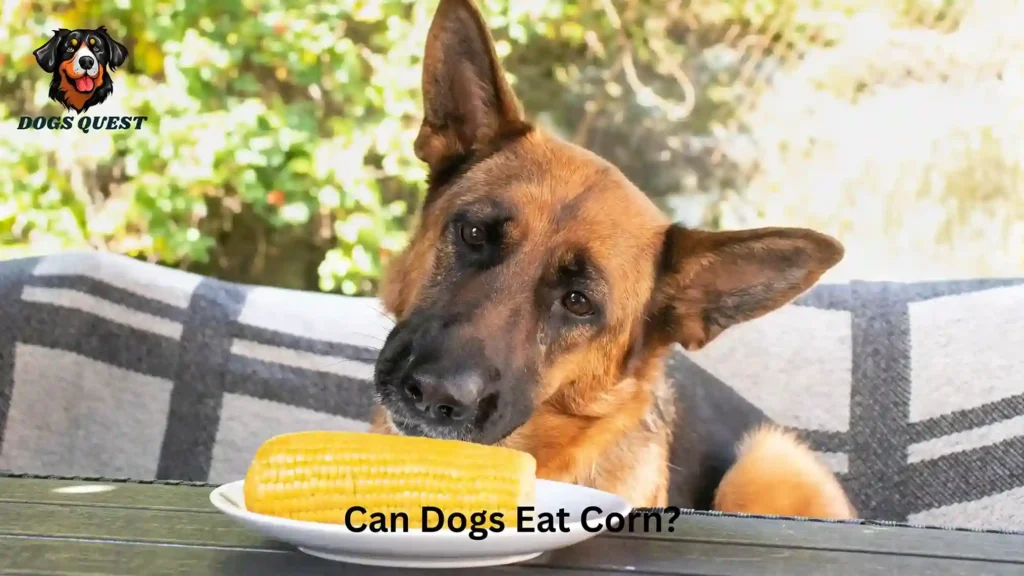
Serve It Cooked and Plain
Raw corn is tough to digest, so always cook it. Boiling or steaming is best.
Mix with Regular Dog Food
Instead of making corn the main dish, mix a small portion with your dog’s kibble.
Watch for Allergic Reactions
If you notice itching, vomiting, or diarrhea, stop feeding corn and consult your vet.
Never Leave Dogs Unsupervised with Corn Cobs
Even if your pup seems uninterested, accidents happen. Keep cobs out of reach.
Alternatives to Corn for Dogs
If you’re unsure about corn, here are safe alternatives:
- Carrots (crunchy, low-calorie snack)
- Pumpkin (great for digestion)
- Green beans (low in calories, high in fiber)
- Peas (rich in vitamins and protein)
These foods can provide similar benefits without the risks associated with corn cobs.
Final Thoughts: Can Dogs Eat Corn Safely?
So, can dogs eat corn? Absolutely – when served correctly and in moderation. Cooked, plain corn kernels can be a tasty, fiber-rich, and energy-boosting treat. But remember, corn cobs are dangerous and should never be offered.
When in doubt, always check with your veterinarian before introducing new foods to your dog’s diet. By following safe feeding practices, you can share the joy of corn with your pup without worry.
FAQs About Can Dogs Eat Corn
Q1: Can Puppies Eat Corn?
Yes, in moderation, but only after they’re weaned and eating solid food. Always cook and mash kernels for easier digestion.
Q2: Is Corn in Dog Food Safe?
Yes, commercial dog food often uses corn as a carbohydrate source. It’s safe when included in balanced formulas.
Q3: Can Dogs Eat Corn Daily?
It’s best not to. Corn should only be an occasional treat, not a daily meal.
Q4: What Should I Do If My Dog Eats a Corn Cob?
Seek veterinary help immediately. Corn cobs rarely pass naturally and usually require surgical removal.
